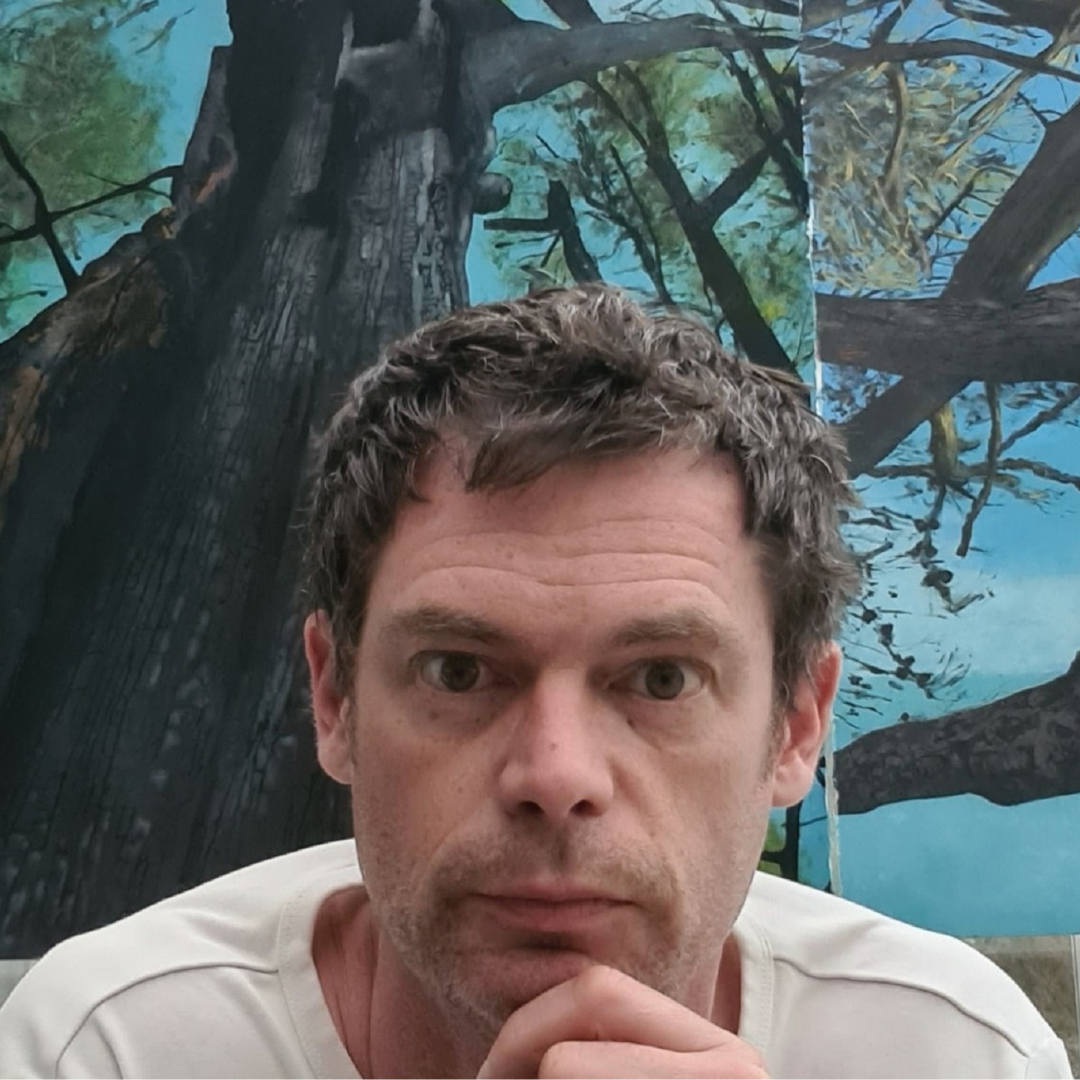An Interview with Stewart Taylor: on Highlighting the Wonder of Natural World and Connecting Through Art.
Stewart Taylor – Artists Feature – VAA Member of the Month August 2023
Devon based printmaker, Stewart Taylor, expresses how his art connects to the world around him, and the ways in which we ourselves can find connection to and reflection on our environment through art.
Stewart has exhibited regularly at the Afforable Art Fairs, and has also been selected for the Woolwich Contemporary Print Fair, as well as appearing in both the RA Summer Show & the National Original Print Show, winning the Great Art Prize at the latter in 2018 for ‘Alcala’. He has been continually interested in the self-inflicted demise Mankind faces within our Anthropocene era, & our behaviour within it. Although the outlook here is perpetually fearful & pessimistic, Stewart tries to create a contrary world of destruction & beauty, where change, metaphysics, erasure, air & light are all of critical importance; but also where the relationships between landscape, living things & humanity are paramount.
‘A lot of my trees appear quite anthropomorphic. And that’s right. We need to recognise a little more that we’re not so different.‘
Ideally…[in this order!]….swim in the sea, just around the corner from me….a bit of breakfast…do the ‘socials’/drafts, comms, & into the studio for a day of printing [rinse & repeat]. But it just doesn’t work out like that – you have to be consistent (especially on social media), but also run with your priorities as a business. And, I think this is really important, not to let any frustration around being ‘taken away’ from the studio to do the other things that ultimately mean that you have a solid strategy, and can get your work organised, seen & sold.
Also, with regards to Instagram especially, I try and keep a week planned ahead with imagery, content, and the nature of it. I’ve seen a lot of stuff around what I would term ‘artificial’ scheduling weeks in advance, that doesn’t allow for a really organic grid/strategy. I’m also part of an Instagram group that actively supports and engages each other on the platform, which has been hugely beneficial in terms of growth.


I work from photographs that I have taken (usually of Trees!), although I do rely on others to provide me content from places that inspire that I cannot travel to. there has to be a tangible essence of place to these that can move me on to printmaking – that has been the case for 30 years, whether I’ve used reprographic processes, or monoprint now. I’ve also invariably taken a multi-layered approach to my imagery, which I love about print. As for knowing when something is finished…I’ve never found that hard to know, luckily!
My prints very much look to describe the wonder of what we have around us, and that it should be looked after an awful lot more than we are doing at present. But very much from the perspective of a flaneur – being preachy doesn’t work! A lot of my trees appear quite anthropomorphic. And that’s right. We need to recognise a little more that we’re not so different.
This quote appears on my website, and it just rings so true;
“No one sees trees. We see fruit, we see nuts, we see wood, we see shade. We see ornaments or pretty fall foliage.Obstacles blocking the road or wrecking the ski slope. Dark, threatening places that must be cleared.We see branches about to crush our roof. We see a cash crop. But trees—trees are invisible ”― Richard Powers, The Overstory (p. 423).
‘Basically, ‘it’s going to be OK!”
I‘m 100% wedded to what my subject is, and what I care about. & similarly, I make work that I think is truly relevant to the world & time I live in. My degree had numerous heavyweight, politically very aware visiting lecturers (Peter Kennard in particular), and I think that rubbed off on me. The importance of being a voice for things that matter.
My lifelong love of the natural world has really come through in my current Tree Portraits series, but it’s been quite an organic progression from my last set of photographic-based screenprints between 2014 & 2018. Back then, after a period of travelling, I was becoming more and more aware of the monumental damage we are doing to our world. All of these prints touched on our follies, our capacity to destroy, and our human condition within that. Following my change of media to using gelliplates, and through experimental prints on environmental degradation and extinction, then led me naturally to rendering my local street trees (which had just been pollarded) into monoprints.

![Brownstone Pine III [Stump #243], 71cm x 100cm, Monoprint, Acrylic & Ink Karin Merx](https://visual-artists.org/wp-content/uploads/Brownstone-Pine-III-Stump-243-71cm-x-100cm-Monoprint-Acrylic-Ink-scaled.jpg)
Most recently – I’d say the aforementioned charity fundraisers and the Jyväskylä Art Museum acquisition of my work. Also being a key component in the studio build that helped East London Printmakers move from London Fields to Mile End in 2016 – I was working full-time in the City simultaneously, so it meant 3 months plus of 70-hour working weeks! seriously, I got a huge sense of satisfaction from this. ELP and the people there are very dear to me, so it was one of my better deeds.
Basically, ‘it’s going to be OK!’ – last year was a little bit tough for a number of reasons, so I was slightly limited creatively and in terms of the number of things I’d have liked to have submitted/applied for, etc.
However, I’d also say ‘cast the net wider for opportunities, invest in the business, and be as visible as possible’. In relation to this question, I think it’s also invaluable to keep sense checking what you have achieved over 6-12 month periods – there is a tendency to dumb down what we’ve done at times.

